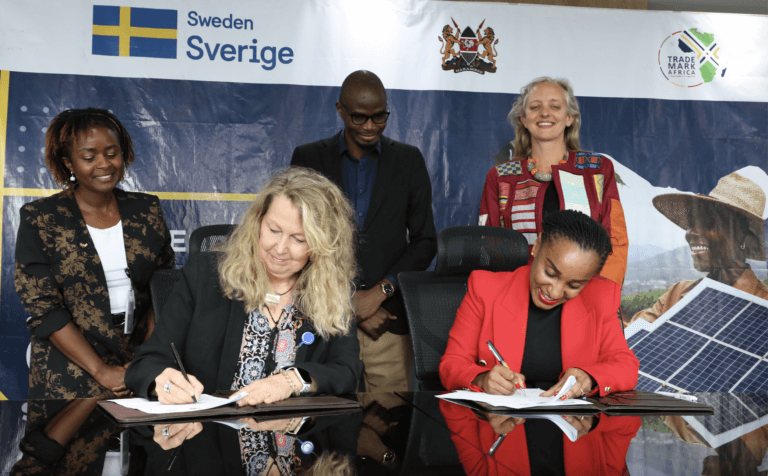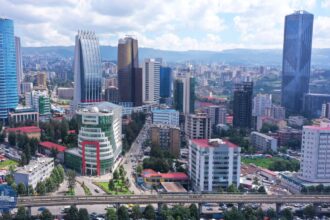At a Glance
- Kenya secures $2.7 million to boost sustainable trade and export competitiveness under a new two-year program.
- Initiative targets port efficiency, green logistics, and supports women- and youth-led SMEs to grow exports.
- Program aims to ensure compliance with upcoming EU deforestation rules, protecting key market access.
Kenya has secured a $2.7 million grant from the Swedish government to fast-track sustainable trade development and strengthen the export competitiveness of small and medium enterprises (SMEs) under the Kenya Enhanced Trade Environment and Inclusion (KETEI) program.
This infusion aligns with Kenya’s ambition to deepen regional and international trade via frameworks such as the African Continental Free Trade Area (AfCFTA), which is reshaping Africa’s trade landscape by facilitating smoother market integration.
The announcement follows a $20 million grant commitment from billionaire Warren Buffett’s foundation toward Kenya’s 2025/26 national budget, signaling heightened international confidence in Kenya’s economic potential.
The two-year KETEI initiative, led by TradeMark Africa, prioritizes key trade growth drivers including enhanced port efficiency, development of green logistics infrastructure, and targeted support for women- and youth-led SMEs to increase export revenues.
By embedding climate-resilient trade practices and inclusive growth, Kenya is setting a new benchmark for sustainable trade leadership in Africa.
Sustainable growth and market access
TradeMark Africa projects that the programme will help micro, small, and medium enterprises (MSMEs)—with a focus on 60% women-led and 40% youth-led businesses—boost their export revenues by $3 million.
Additionally, KETEI is expected to attract $5 million in private sector investment toward green logistics solutions, vital for enhancing Kenya’s supply chain resilience and meeting global sustainability standards.
Marie Ottosson, Head of Sweden’s Kenya Development Cooperation, emphasized the global shift toward sustainable consumption.
“With the EU Deforestation Regulation (EUDR) coming into effect in 2026, this support is vital for Kenya’s smallholder producers to maintain access to key markets, especially the European Union,” she said.
Sweden remains a strategic partner in supporting AfCFTA’s goal of deepening intra-African trade integration.
Lillian Mwai-Ndegwa, Kenya Country Director at TradeMark Africa, highlighted the programme’s role in addressing structural trade inefficiencies.
“Focusing on inclusive, climate-resilient growth ensures Kenya not only diversifies export markets but also safeguards its competitive edge in the global economy,” she said.

Navigating EU deforestation regulations
Kenya’s coffee exports, valued at $252 million in 2023, underscore the urgency.
The EU accounted for 55% of this trade, but with the EUDR restricting commodities linked to deforestation from entering EU markets after December 2025 (medium and large companies) and June 2026 (small enterprises), compliance is critical.
This partnership marks a pivotal step in positioning Kenya as a leader in sustainable trade within Africa and beyond, leveraging green infrastructure and empowering youth and women entrepreneurs to tap global opportunities.
















